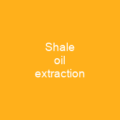What is Petroleum?
Petroleum: The Lifeblood of Modern Civilization
Imagine a liquid that flows like the veins of our planet, carrying energy to every corner of the globe. That’s petroleum, a naturally occurring mixture of hydrocarbons found deep within Earth’s crust. It’s not just any fluid; it’s the lifeblood of modern civilization, powering everything from your car to the plastics in your home.
The History and Uses of Petroleum
From ancient civilizations using petroleum for lamps and paving streets to the first oil well drilled in 1859, the history of petroleum is a fascinating journey. The term ‘petroleum’ itself comes from Latin roots meaning “rock” and “oil,” hinting at its origins and significance.
The Early Days
Did you know that Native Americans were digging sophisticated oil pits as early as 1415-1450? Or that the first European site to explore petroleum was Merkwiller-Pechelbronn, where a spring with petroleum appeared since 1498?
The Industrial Revolution
By the mid-19th century, various parts of the world were already engaged in oil exploration. The first commercial oil well in America was drilled by Edwin Drake in 1859, marking a pivotal moment in history.
Petroleum: A Crucial Commodity
Energy and Beyond
Today, petroleum is the world’s most important source of energy. It makes up about 40% of total energy consumption in the United States alone. But its uses extend far beyond fuel; it’s a raw material for various chemical products like plastics, pharmaceuticals, and synthetic polymers.
The Global Landscape
Crude oil is refined into different types of fuels such as gasoline, diesel, jet fuel, and heating oil. The top three oil-producing countries in 2018 were the United States, Russia, and Saudi Arabia. About 80% of the world’s accessible reserves are located in the Middle East.
Environmental Impact
The extraction and use of petroleum have significant environmental impacts. It contributes to climate change through greenhouse gas emissions and pollution from oil spills. However, alternatives like electric vehicles and biojet fuel are slowly gaining traction as we seek a cleaner future.
The Future of Petroleum Production
Uncertain Horizons
As the world transitions to renewable energy sources, the future of petroleum production is uncertain. Some predict that peak oil has been reached due to changing consumption patterns and economic factors. Others argue that unconventional methods like horizontal drilling and hydraulic fracturing could extend its life.
Technological Advancements
Newly found reservoirs and enhanced recovery techniques will continue to play a significant role in the industry. However, the complexity of production, including high investments for offshore giants and unknown subsalt reservoirs like Tupi, presents both challenges and opportunities.
Conclusion
Petroleum is not just an energy source; it’s a complex mixture that has shaped human history and continues to influence our world. As we navigate the transition to renewable energy, petroleum remains a crucial component of modern life, with its future uncertain but undeniably significant.

You want to know more about Petroleum?
This page is based on the article Petroleum published in Wikipedia (retrieved on February 19, 2025) and was automatically summarized using artificial intelligence.





